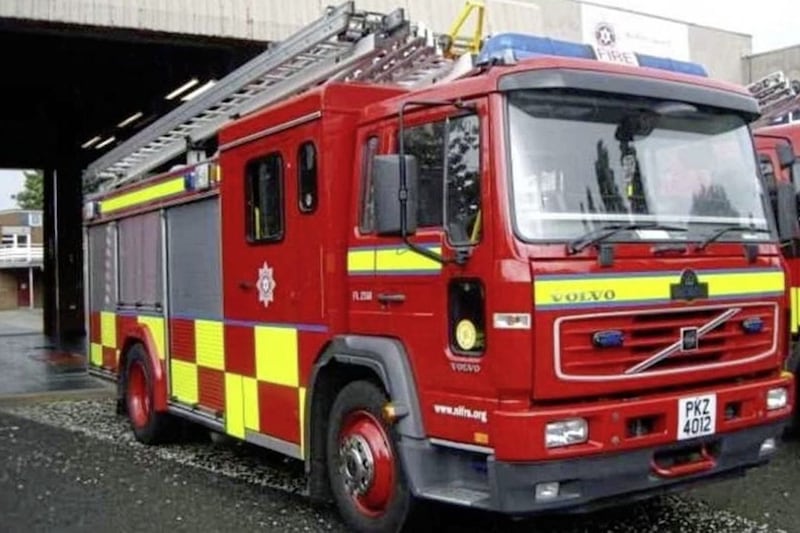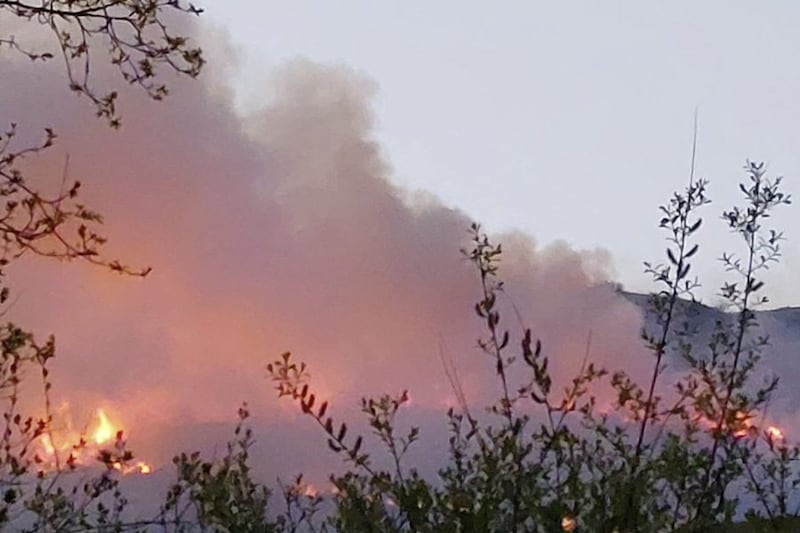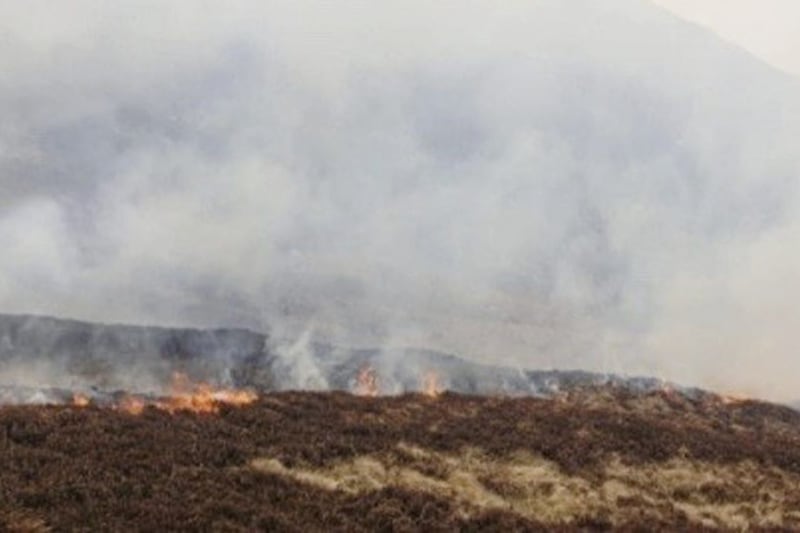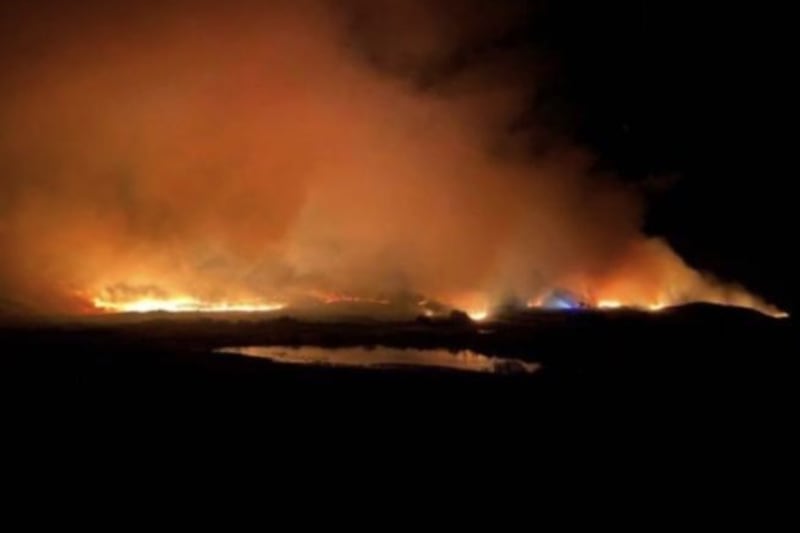AUTHORITIES have warned of the increased risk of wildfires across Northern Ireland as temperatures continue to soar.
With forecasters predicting the mercury will hit 30C in some spots today, people are being warned about the increased possibility of gorse fires.
The Northern Ireland Fire and Rescue (NIFRS) service - who attended more than 2,000 fires last year, have appealed for vigilance.
Gerry Lennon, Group Commander of the NIFRS said: “Gorse fires can be caused accidentally by something as simple as throwing a cigarette from a car window, leaving a glass bottle on the ground or not extinguishing a barbecue properly.
"Your seemingly innocent mistake could well cause a severe gorse fire that destroys acres of countryside and ties up fire-fighting resources for prolonged periods," he said.
There are also fears of serious fires in the Republic, as a red status forest-fire warning has been released.
The Department of Agriculture, Food and the Marine (DAFM) issued the warning as the heatwave continues.
Irish Water has warned the public that water restrictions will become unavoidable as a prolonged dry spell is predicted.
They are appealing to the public to conserve water during the "serious situation."
Northern Ireland Water - which continually checks water levels in key reservoirs - said the weather is a situation it closely monitors.
During a long spell of dry weather, the demand for water increases significantly.
However, despite the continuing warm weather, the company said there is still plenty of water.
The Northern Ireland Environment Agency (NIEA) meanwhile has warned that lower water levels and higher temperatures mean a higher risk of pollution.
Head of NIEA's water management unit Tim Irwin said: “There are still too many water pollution incidents in Northern Ireland that cause damage to our environment and to our wildlife.
"Our landowners, farmers and industry must take extra precautions during the warmer months to ensure that pollutants are not allowed to escape into our freshwater, groundwater or marine environments.
"Water is a valuable and precious asset and we should treat it as such,” he added.








